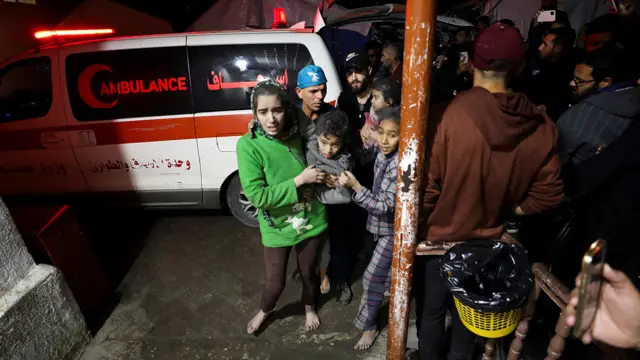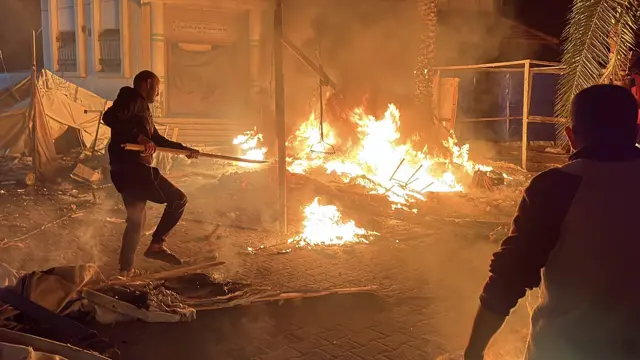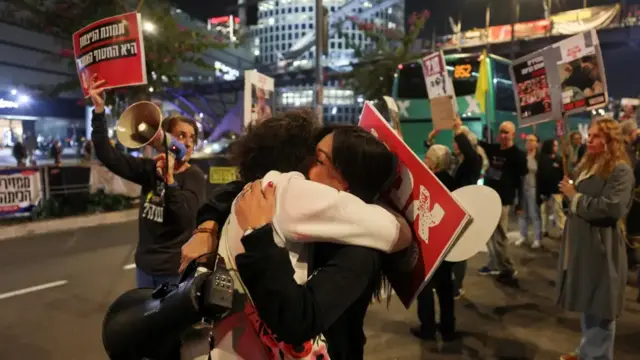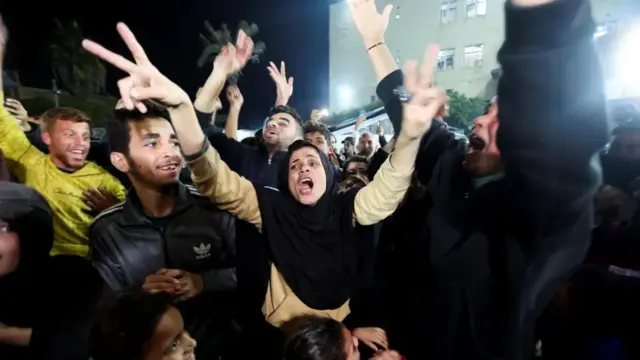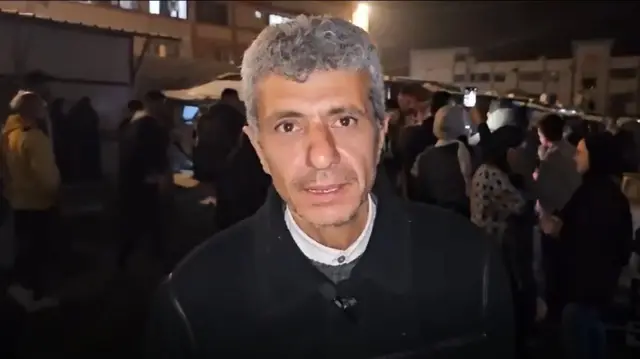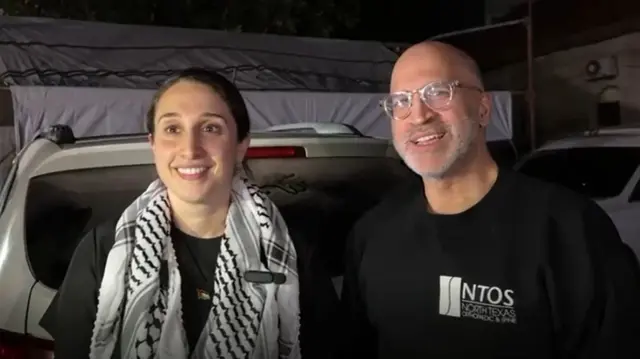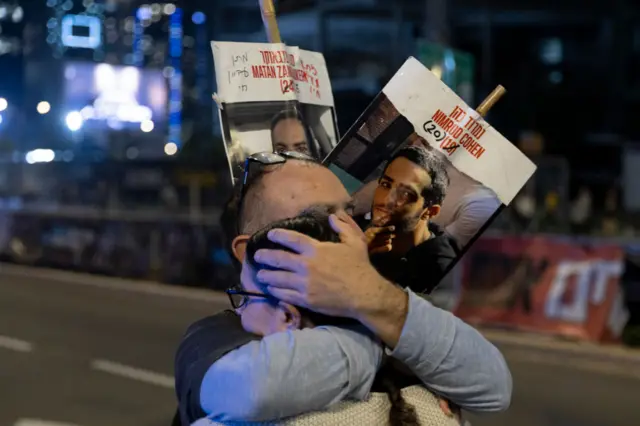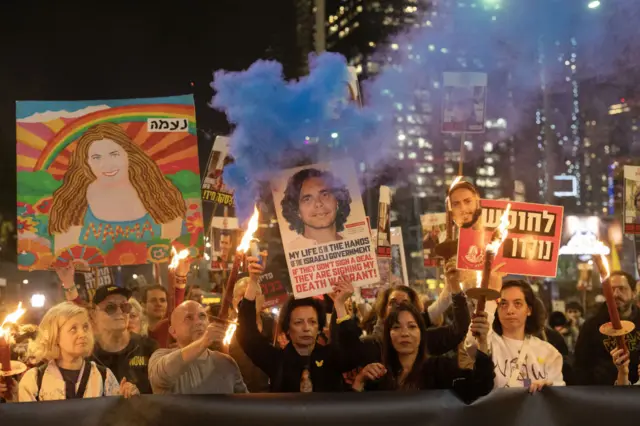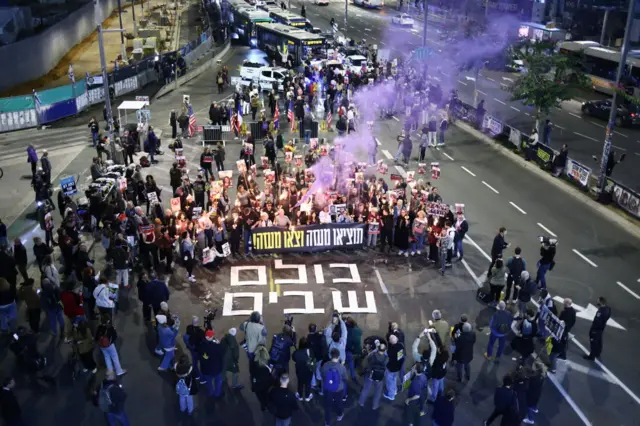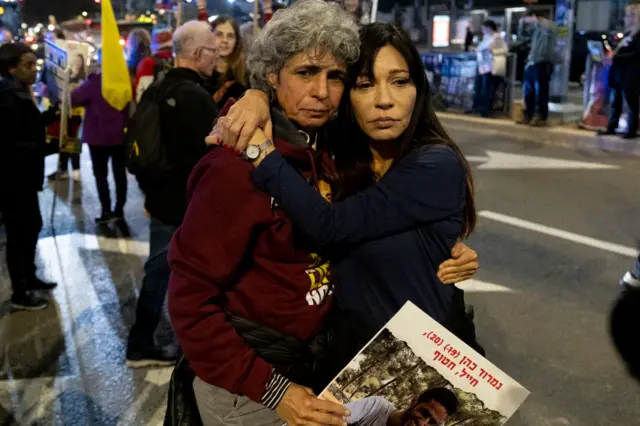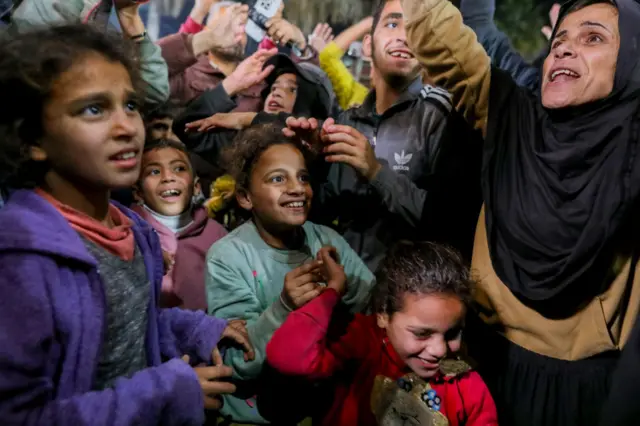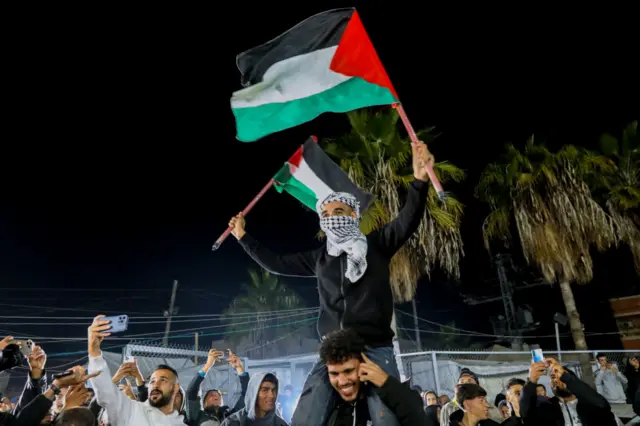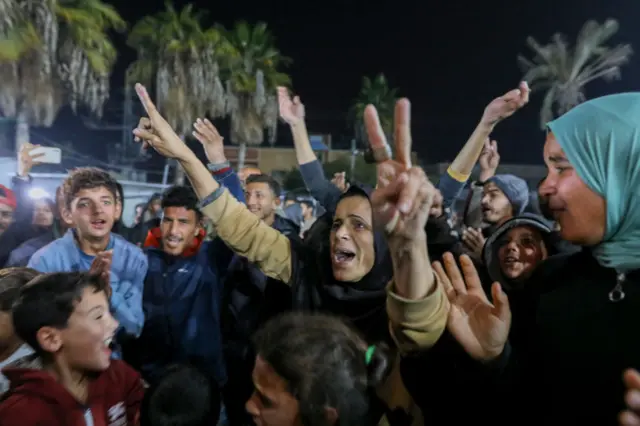We're dealing with 40 million tonnes of rubble in Gaza, says UN development headpublished at 08:04 GMT 16 January
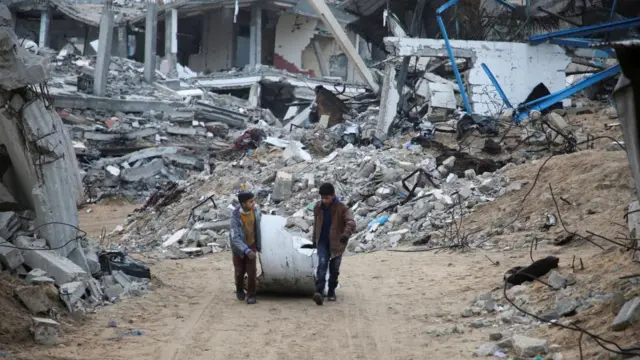 Image source, Reuters
Image source, ReutersThe head of the UN Development Programme says Gaza is estimated to have lost "decades" of development.
"We are dealing with 40 million tonnes of rubble alone that have to be removed. That rubble is highly dangerous, it is toxic, it has unexploded ordinance," Achim Steiner tells BBC World Service's Newsday programme.
Steiner, who's overseeing efforts to support rebuilding and rehousing displaced people, says a major effort is needed to clear the rubble so that people can return to their homes or shelters.
"This is a very complex undertaking that we are now essentially confronted with," he adds.
Steiner also said a complete cessation of fighting and access to humanitarian aid in Gaza are the top priorities in the first 42 days following the ceasefire agreement.
"We have continued to face significant restrictions in terms of being able to move supplies and commodities into Gaza," he says. "We have to create access, we have to create security that will allow life-saving aid to be able to be brought in."


